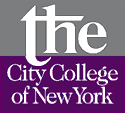 |

|
Name One or two paragraphs professional description about yourself |
|
| Link to resume | Link to homepage (optional) |
|
This portfolio is intended to achieve several goals: to document your growth as a teacher during the time you were a student in the Education Department, to demonstrate that you have achieved the competencies necessary to help children attain the New York State Learning Standards, to provide evidence of your ability to promote the learning of children from diverse cultural, ethnic and language backgrounds, and to showcase some of your best and most creative work with children. |
| A. Initial Philosophy (date) |
| B. End-of-Program Philosophy (date) |
|
Your student teaching seminar instructor will help identify items that should be included in your professional portfolio. Please create a one or two paragraph summary of each portfolio entry that you are including in your portfolio. For each entry specify which of the ACEI standards (Association for Childhood Education International) and/or New York State Learning Standards are addressed. Also reference any instructional technology you have used. Number your artifacts 1, 2, 3, etc.
|
|
Include memberships in professional organizations, conferences you have attended, staff development workshops you have participated in, and your particular interests and areas of expertise. |
VI. Summary Reflection on My Growth
| A. As a Teacher |
| B. In the Use of Instructional Technology |
|
School of Education Conceptual Framework (National Council for Accreditation of Teacher Education - NCATE) Themes
of the Conceptual Framework
Association for Childhood Education International (ACEI) Standards
Link(s) to entry fulfilling Standard 1 Standard
2 - CURRICULUM Link(s) to entry fulfilling Standard 2.1 Standard 2.2 - Science - Candidates know, understand, and use fundamental concepts in the subject matter of science-including physical, life, and earth and space sciences-as well as concepts in science and technology, science in personal and social perspectives, the history and nature of science, the unifying concepts of science, and the inquiry processes scientists use in discovery of new knowledge to build a base for scientific and technological literacy. Link(s) to entry fulfilling Standard 2.2 Standard 2.3 - Mathematics - Candidates know, understand, and use the major concepts and procedures that define number and operations, algebra, geometry, measurement, and data analysis and probability. In so doing, they consistently engage problem solving, reasoning and proof, communication, connections, and representation. Link(s) to entry fulfilling Standard 2.3 Standard 2.4 - Social studies - Candidates know, understand, and use the major concepts and modes of inquiry from the social studies-the integrated study of history, geography, the social sciences, and other related areas-to promote elementary students' abilities to make informed decisions as citizens of a culturally diverse democratic society and interdependent world. Link(s) to entry fulfilling Standard 2.4 Standard 2.5 - The arts - Candidates know, understand, and use-as appropriate to their own knowledge and skills-the content, functions, and achievements of the performing arts (dance, music, theater) and visual arts as primary media for communication, inquiry, and engagement among elementary students. Link(s) to entry fulfilling Standard 2.5 Standard 2.6 - Health education - Candidates know, understand, and use the major concepts in the subject matter of health education to create opportunities for student development and practice of skills that contribute to good health. Link(s) to entry fulfilling Standard 2.6 Standard 2.7 - Physical education - Candidates know, understand, and use-as appropriate to their own understanding and skills-human movement and physical activity as central elements to foster active, healthy life styles and enhanced quality of life for elementary students. Link(s) to entry fulfilling Standard 2.7 Standard
3 - PEDAGOGICAL
KNOWLEDGE Link(s) to entry fulfilling Standard 3.1 Standard 3.2 - Standard Adaptation to diverse students - Candidates understand how elementary students differ in their development and approaches to learning, and create instructional opportunities that are adapted to diverse students. Link(s) to entry fulfilling Standard 3.2 Standard 3.3 - Development of critical thinking and problem solving - Candidates understand and use a variety of teaching strategies that encourage elementary students' development and use of critical thinking and problem solving, Link(s) to entry fulfilling Standard 3.3 Standard 3.4 - Active engagement in learning - Candidates use their knowledge and understanding of individual and group motivation and behavior among students at the K-6 level to foster active engagement in learning, self- motivation, and positive social interaction and to create supportive learning environments. Link(s) to entry fulfilling Standard 3.4 Standard 3.5 - Communication to foster learning - Candidates use their knowledge and understanding of effective verbal, nonverbal, and media communication techniques to foster activity inquiry, collaboration, and supportive interaction in the elementary classroom. Link(s) to entry fulfilling Standard 3.5 Standard 4 - ASSESSMENT FOR INSTRUCTION - Candidates know, understand, and use formal and informal assessment strategies to plan, evaluate, and strengthen instruction that will promote continuous intellectual, social, emotional, and physical development of each elementary student. Link(s) to entry fulfilling Standard 4 Standard
5 - BUILDING OF CARING COMMUNITIES Link(s) to entry fulfilling Standard 5.1 Standard 5.2 - Collaboration - Candidates know the importance of establishing and maintaining positive collaborative relationships with families, school colleagues, and agencies in the larger community to promote the intellectual, social, emotional, physical growth, and well-being of children. Link(s) to entry fulfilling Standard 5.2 |
||
|
National Board for Professional Teaching Standards (NBPTS) The five core propositions what teacher should know and be able to do:
|
||
| New York State Learning Standards | ||
©
Copyright The City College of The City University of New York - School
of Education. All rights reserved.
Last updated on:
September 26, 2006